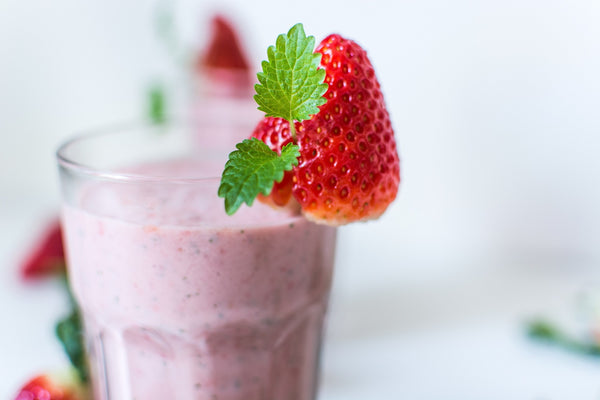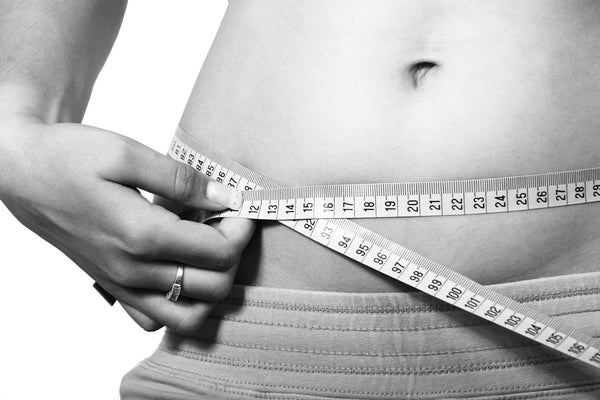Burn Fat Fast: Starting a Ketogenic Diet for Weight Loss

Unless you’ve been living under a rock these last few years, there’s no doubt that you’ve seen the word keto plastered all over magazines, websites, and supplements.
Short for ketogenic, this diet craze is sweeping over the nation and with good reason: there are a variety of studies that demonstrate a number of potential benefits including weight loss, cognitive boosting, and decreased risk of certain diseases.
If you have tried every diet in the book without success, the ketogenic diet may be the one that brings you the success you’ve been wanting. Let’s take a look at what the ketogenic diet is and how you can begin to safely and effectively follow it for real results.

Carbohydrate Abuse
The Ketogenic Diet focuses on getting you into a state called Ketosis, which we will talk more about below. How do you achieve Ketosis? By focusing on fat, not carbohydrates. Here’s the breakdown:
On your current diet, your body is using glucose primarily or exclusively from carbohydrates as a main source of fuel. You eat carbohydrates such as rice, bread, and baked goods then your body converts those carbohydrates into usable glucose. The problem with carbohydrates is that we, as a global population, tend to eat too many.
Excess carbohydrate intake, especially from sugar, promotes excess fat storage and consequently weight gain. What’s more, higher glycemic, sugar-based carbohydrates are linked to diseases such as diabetes. In other words, carbohydrate-focused diets can be healthy when practiced correctly but they also present a number of health issues.
This constant carbohydrate abuse has resulted in a shift away from our carb-happy lifestyles to focus on a macronutrient that has long been mistakenly identified as a direct cause of weight gain. We’re talking, of course, about fat. (1)
Despite what you may have read, an appropriate consumption of healthy fats does not cause weight gain; in fact, it’s just the opposite. Healthy fats can promote weight loss. What’s more, focusing primarily on a fat-based diet can bring about a number of huge benefits. Enter the Ketogenic Diet.
What is the Ketogenic Diet?
In the same vein as the Atkins Diet, the Ketogenic Diet focuses on drastically reducing carbohydrate intake. The difference between Atkins and Ketogenic is that going Keto focuses on healthy fats and a moderate amount of lean proteins.
By drastically reducing your carbohydrate intake and supplementing that macronutrient with more healthy fats, you can push your body into a state of ketosis. During ketosis, your body relies on ketones bodies as a primary fuel source, not glucose.
What’s so special about Ketone bodies as fuel?
Ketone Bodies as Energy
Ketone bodies are a super charged source of fuel for your body. They are produced in the liver and their production is triggered by, you guessed it, carbohydrate restriction. Once your body recognizes the low intake of carbohydrates and after liver glycogen, a stored form of glucose, is used up, it will task the liver with producing these ketone bodies.
Once these ketones enter the blood stream, they are immediately snatched up and used as energy. Excess ketones bodies are tossed out in the urine and you even breathe out excess ketones. Side note: There are ketone body tests that you can buy over-the-counter to track how far into ketosis your body is via these excreted ketones.
In other words, ketone body production is hard-wired into us as a back-up source of energy; however, thanks to recent studies, researchers are suggesting that ketone bodies may be a more efficient way to fuel our bodies, especially our brains.

Ketone Bodies vs. Glucose
Energy is energy once your cells get a hold of it, right? Not exactly.
Yes, while our bodies love burning glucose, there may be a catch that involves what is left over after our cells burn through glucose. Emily Deans M.D., published an article in Psychology Today, suggesting that when our cells use up glucose, they leave behind a greater free-radical footprint. Free radicals, as you may know, contribute to illness and aging. This is why a diet rich in anti-oxidants is so important.
When our bodies utilize ketone bodies to create energy, your body has an easier time with restoring cellular balance and avoiding what Dr. Deans calls “depolarizing electrical energy spikes.” Best of all, you don’t have to worry as much about leftover free radicals. (2)
Not to bash glucose too much: Certain parts of the brain DO require glucose and ketone bodies won’t suffice. That is where gluconeogenesis comes into play. This is a process where the body uses proteins to make glucose to satisfy those parts of the body that can’t run solely on ketone bodies.
You know your body prefers ketone bodies to glucose, for most things, so what about the actual practical application of a ketogenic diet? Does it really have a variety of proven benefits? You bet it does.
Proven Benefits of Ketosis
Fat Burning & Weight Loss
- One of the most cited benefits, and one of the most popular reasons for starting a ketogenic diet, is fat burning and weight loss. Once your body enter a ketogenic state, it has been scientifically shown to induce a greater level of fat burning that leads to a successful long-term weight loss. (3, 4)
Muscle Sparing
- A common fear of the ketogenic diet is that your body will start eating away at muscle tissue. Studies show that this is not true, especially if you have excess fat to lose. Your body will focus on using fatty acids and ketone bodies as a fuel source. Only ingested protein will be utilized as a potential fuel source, not stored muscle protein. (5)
Stabilizes Insulin Levels
- For overweight and obese people, one of the biggest hormonal issues they have is with insulin. Due to the over exposure to carbohydrates, their bodies have become insulin resistant. Switching over to a ketogenic diet has been shown to improve insulin sensitivity, making it possible for patients to reduce or eliminate medication for insulin. (3)
Cognitive Power
- To extend on what Dr. Deans was saying, your brain would rather use ketone bodies as an energy source than glucose. Beta-Hydroxybutyrate, or BHB, in particular, is an incredible effective form of energy. Using ketone bodies may be very beneficial for your brain as there is less of a free-radical footprint, as mentioned above. is far more energy efficient when compared to glucose. What’s more, entering a ketogenic state may help your body to fight back against free radicals that are precursors for aging and disease. (6, 7)

How to Start a Keto Diet
Ready to start your ketogenic diet? Let’s review some must-know tips and tricks to help you start building a solid foundation that will lead to success.
Not All at Once
- Yes, while the end result is a very low carbohydrate intake per day, you don’t want to cut all carbs at once. This will inevitably lead you to develop what is known as Keto Flu. Instead, it’s important to take your time and slowly ease into a ketogenic diet. You can do this by making simple changes and slowly decreasing your carbohydrate intake. First, try switching out sugar-based carbs for healthier options. In a week or two, replace a carbohydrate-based meal with a fat-based meal. Slowly, cut the carbohydrates down until you reach around 20 to 40 grams per day.
Focus on Your Fats
- As mentioned above, you need to slowly cut out carbs WHILE you implement more fat-based meals. Get acquainted with healthy fats such as lean, grass-fed meats; avocado, coconut oil, pumpkin seeds, nuts, etc.
Consider Supplementing
- Believe it or not, there is actually a supplement out there that puts those ketones bodies directly into your body to help you reach ketosis faster. It doesn’t taste like a cake batter protein shake but it is extremely helpful. Exogenous ketones are a popular supplement for those on the ketogenic diet. You can purchase them online or in your local supplement retailer. Use as directed.
Know Your Numbers
- It may vary a bit by individual, but here is the general ratio that you should be aiming to eat each day.
- Healthy Fats: 80%
- Lean Protein: 15%
- Complex Carbohydrates: 5% (or less)
- An easy way to ensure you’re eating within these ranges is to download a Keto calculator apps, which can produce your personalized numbers and provide you with a meal tracker. Speaking of meals…
Eat the Right Foods
- Click here to check out a free and printable guide to many of the Keto-Friendly foods that you can have on a Ketogenic Diet.
Tell Us What You Think!
Are you on a ketogenic diet?
What benefits have you noticed?
What advice can you offer beginners?
Let us know in the comments below!
References
- "Carbohydrates and Blood Sugar." The Nutrition Source. Harvard: School of Public Health, 25 July 2016. Web.
- Deans, Emily, M.D. "Your Brain on Ketones." Psychology Today. Sussex Publishers, 18 Apr. 2011. Web.
- Hussein M Dashti, MD PhD FICS FACS, Thazhumpal C Mathew, MSc PhD FRCPath, Talib Hussein, MB ChB, Sami K Asfar, MB ChB MD FRCSEd FACS, Abdulla Behbahani, MB ChB FRCS FACSI PhD FICS FACS, Mousa A Khoursheed, MB ChB FRCS FICS, Hilal M Al-Sayer, MD PhD FICS FACS, Yousef Y Bo-Abbas, MD FRCPC, and Naji S Al-Zaid, BSc PhD. Long-term effects of a ketogenic diet in obese patients. Exp Clin Cardiol. 2004 Fall; 9(3): 200–205. PMCID: PMC2716748.
- Antonio Paoli. Ketogenic Diet for Obesity: Friend or Foe? Int J Environ Res Public Health. 2014 Feb; 11(2): 2092–2107. PMCID: PMC3945587
- Adams, J. H., Koeslag, J. H., (1989), Glycogen Metabolism And Post-Exercise Ketosis In Carbohydrate-Restricted Trained And Untrained Rats. Experimental Physiology, 74 doi: 10.1113/expphysiol.1989.sp003236.
- Noh HS, Lee HP, Kim DW, Kang SS, Cho GJ, Rho JM, Choi WS. A cDNA microarray analysis of gene expression profiles in rat hippocampus following a ketogenic diet. Brain Res Mol Brain Res. 2004 Oct 22;129(1-2):80-7.
- Lee J, Bruce-Keller AJ, Kruman Y, Chan SL, Mattson MP. 2-Deoxy-D-glucose protects hippocampal neurons against excitotoxic and oxidative injury: evidence for the involvement of stress proteins. J Neurosci Res. 1999 Jul 1;57(1):48-61.
- Tags: featured
0 comments











